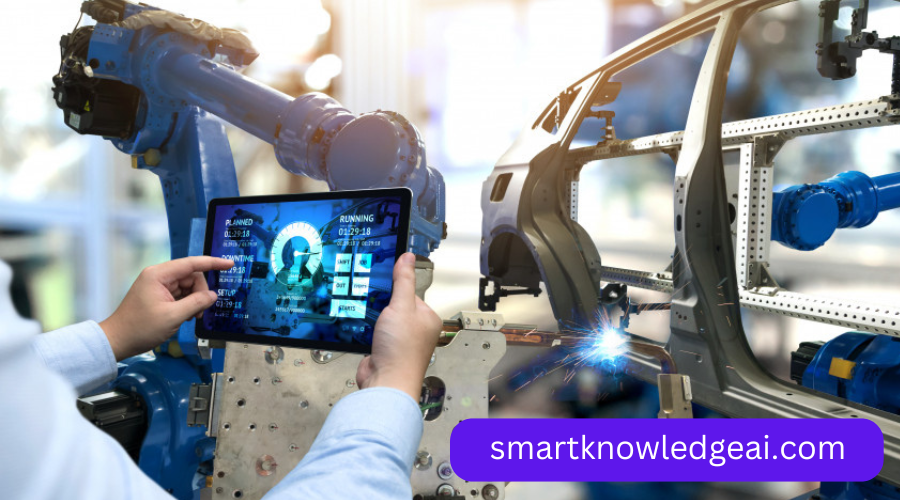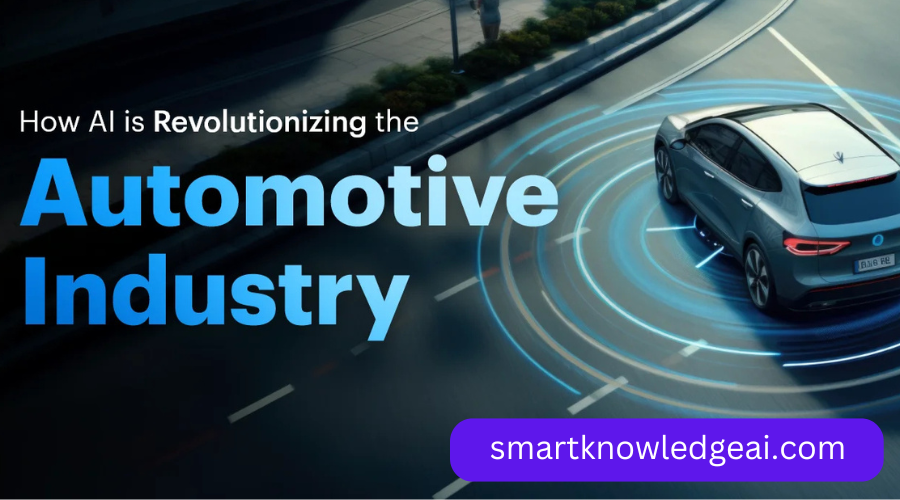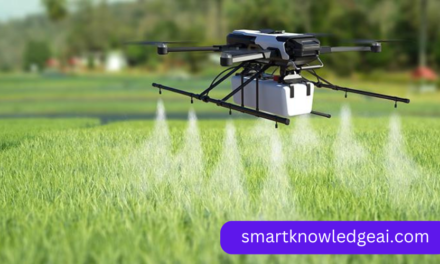Artificial Intelligence (AI) is revolutionizing the automotive industry, leading to smarter, safer, and more efficient vehicles. From autonomous driving capabilities to advanced manufacturing processes and improved customer experiences, AI is transforming how we think about transportation. This blog explores the applications of AI in the automotive industry, the benefits it brings, the challenges it faces, and the future it promises.
Key Applications of AI in the Automotive Industry
- Autonomous Driving: AI is at the core of self-driving vehicles, enabling cars to interpret and react to their surroundings. Through computer vision, sensor data processing, and machine learning, AI helps vehicles navigate, avoid obstacles, and make driving decisions.
- Driver Assistance Systems: Advanced driver-assistance systems (ADAS) use AI to improve driver safety. Features like adaptive cruise control, lane departure warnings, and emergency braking make driving safer and more convenient.
- Predictive Maintenance: AI can monitor a vehicle’s performance and predict potential issues before they become critical, reducing downtime and maintenance costs. Sensors collect data on various vehicle parts, and AI analyzes this data to detect signs of wear or malfunction.
- Manufacturing and Quality Control: AI is streamlining the automotive manufacturing process. Robotics powered by AI are used in assembly lines, while machine learning algorithms detect defects in real-time, ensuring higher quality standards.
- Personalized In-Car Experience: AI can create a personalized experience for passengers. From voice-activated assistants to entertainment suggestions, AI tailors the driving experience based on user preferences and behaviors.
- Traffic Management and Smart Infrastructure: AI contributes to smart traffic management systems, helping reduce congestion, optimize route planning, and improve urban mobility.
Benefits of AI in the Automotive Industry
- Enhanced Safety: AI technologies like ADAS and autonomous driving can reduce human error, a leading cause of traffic accidents. AI-powered safety features help prevent collisions, making roads safer.
- Increased Efficiency: AI optimizes the manufacturing process, reducing waste and enhancing production speed. Predictive maintenance also helps vehicle owners and manufacturers minimize downtime, keeping vehicles operational longer.
- Cost Savings: With predictive maintenance and efficient manufacturing, AI helps lower costs for both manufacturers and consumers. Self-driving technology could also reduce transportation costs by enabling car-sharing and ride-hailing services.
- Improved User Experience: AI enhances the in-car experience through voice control, personalized settings, and entertainment options, creating a more enjoyable journey for drivers and passengers.
- Environmental Impact: AI can help optimize fuel consumption, reduce emissions, and enhance the efficiency of electric vehicles, contributing to a more sustainable automotive industry.
Challenges of AI in the Automotive Sector
- Data Privacy and Security: Autonomous vehicles collect and process massive amounts of data, raising concerns about data privacy and cybersecurity. Protecting data from breaches and misuse is essential.
- High Development Costs: AI technology, especially for autonomous driving, requires significant investment in research, development, and testing. This can make it costly for manufacturers and may increase vehicle prices.
- Legal and Ethical Issues: The deployment of autonomous vehicles brings ethical questions about decision-making in critical situations and liability in accidents. Developing regulations that address these issues is a challenge for policymakers.
- Reliability and Safety Standards: AI must be extensively tested and certified to ensure it operates safely and reliably under diverse conditions. Meeting stringent safety standards is crucial to gaining consumer trust.
- Public Acceptance: Some people may be hesitant to adopt AI-powered vehicles due to safety concerns and a lack of familiarity with the technology. Educating the public on the benefits and safety of AI in vehicles is essential.

Future Trends in AI and the Automotive Industry
- Fully Autonomous Vehicles: As AI continues to evolve, fully autonomous vehicles will become more common on public roads, making transportation more accessible and efficient.
- Electric and AI Integration: The shift towards electric vehicles (EVs) will work in tandem with AI, optimizing battery performance, energy consumption, and charging solutions to create a seamless EV experience.
- V2X (Vehicle-to-Everything) Communication: AI will facilitate V2X technology, allowing vehicles to communicate with each other and with infrastructure, further enhancing safety and traffic management.
- AI-Enhanced Driver Monitoring: Future AI systems may include more advanced driver monitoring to assess driver fatigue, distraction, and health, ensuring they stay alert and safe while driving.
- AI in Urban Mobility and Smart Cities: AI will play a significant role in developing smart cities, improving traffic flow, reducing congestion, and integrating different modes of transportation for seamless urban mobility.
Conclusion
AI is driving profound changes in the automotive industry, paving the way for a future of smarter, safer, and more sustainable vehicles. With its ability to enhance safety, improve efficiency, and personalize the driving experience, AI has become an essential element in modern vehicles and manufacturing processes. While challenges remain, the potential for AI to revolutionize transportation is immense, and we are only beginning to see its transformative impact on the roads.










